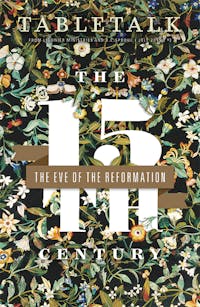
Request your free, three-month trial to Tabletalk magazine. You’ll receive the print issue monthly and gain immediate digital access to decades of archives. This trial is risk-free. No credit card required.
Try Tabletalk NowAlready receive Tabletalk magazine every month?
Verify your email address to gain unlimited access.
The brightest object in the sky, after the sun and moon, is the morning star. It appears about an hour before dawn. John Wycliffe (c. 1330-84) is often called the “Morning Star of the Reformation,” and for good reason, for his life shone brightly as a forerunner of the Reformation. Jan Hus (c. 1370-1415) worked by the light of this morning star, even as the greater light of the Reformation was about to dawn. Through Wycliffe, God brought light to people who were dwelling in darkness—one of whom was Hus. Hus boldly carried on the controversy that Wycliffe began, the controversy over the final authority of Scripture that would soon engulf the entire continent of Europe in the Reformation of the sixteenth century. In fact, Martin Luther (1483-1546), in his debate with Johann Eck, even declared, “I am a Hussite.”
These men were by no means the source of light; they were tarnished mirrors who reflected the one source of light, the Light of the World—Jesus Christ. The living and active Word of God reveals this Light. In His sovereignty, God used these forerunners of the Reformation to direct His people back to His Word. Once Scripture was rediscovered, the light of God’s truth began to shine ever more brightly in the hearts of God’s people, which, in turn, led to the Reformation.
Though Wycliffe died a natural death, his remains were later disinterred, burned, and scattered. On the other hand, the Roman Catholic Church burned Hus at the stake, even though he was promised safe conduct to and from his trial. It is said that he sang a hymn to Christ as the flames engulfed his body. His remains, like Wycliffe’s, were scattered. Nevertheless, the darkness could not dispel the Light of the World. This light, long obscured but still shining, soon dawned on Europe anew and subsequently throughout the rest of the world.
In his life and death, Hus pointed not to himself, but to the Word of God as our only infallible authority for faith and life. God’s Word proclaims the light of the gospel—the good news of Jesus Christ. Hus’ message was simple: To know the truth, the church must go to the source of truth—sacred Scripture itself. The Reformers picked up the mantle of Wycliffe and Hus, crying ad fontes, “to the sources.” They implored the church to return to divine revelation, the original text of sacred Scripture by which the Holy Spirit brings life and liberty through the light of the gospel.
As Christians, we know that there is but one true Source of light, and the Holy Spirit will continue to dispel the darkness in the hearts of God’s people through His Word. And one day, when Christ returns and consummates His kingdom, He will transform everything. As we live as Christians in the twenty-first century, we are called to live coram Deo, before the face of God, as we carry the same flaming torch that Wycliffe, Hus, and Luther carried as we boldly proclaim the Light of the World to a dark and dying world.
